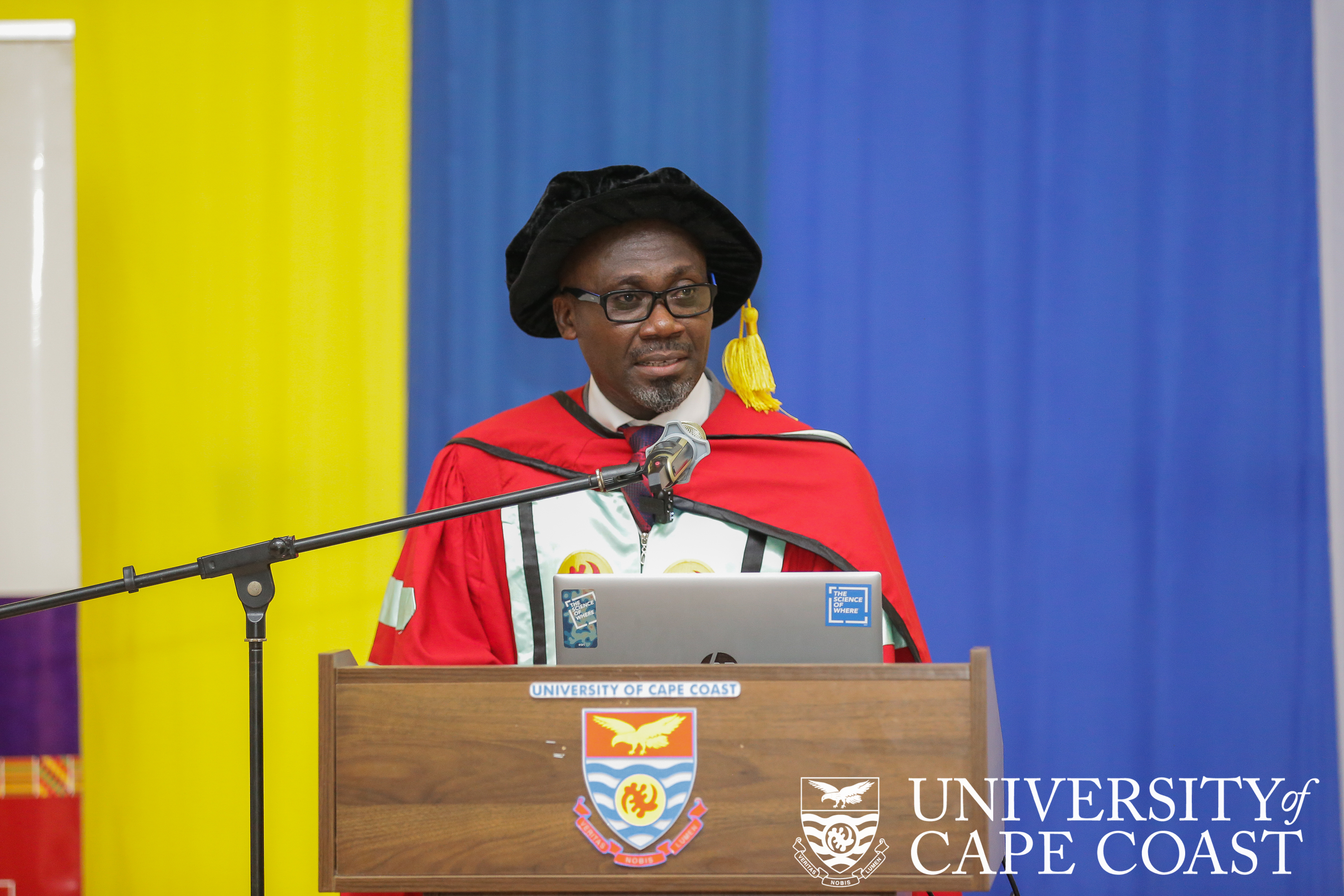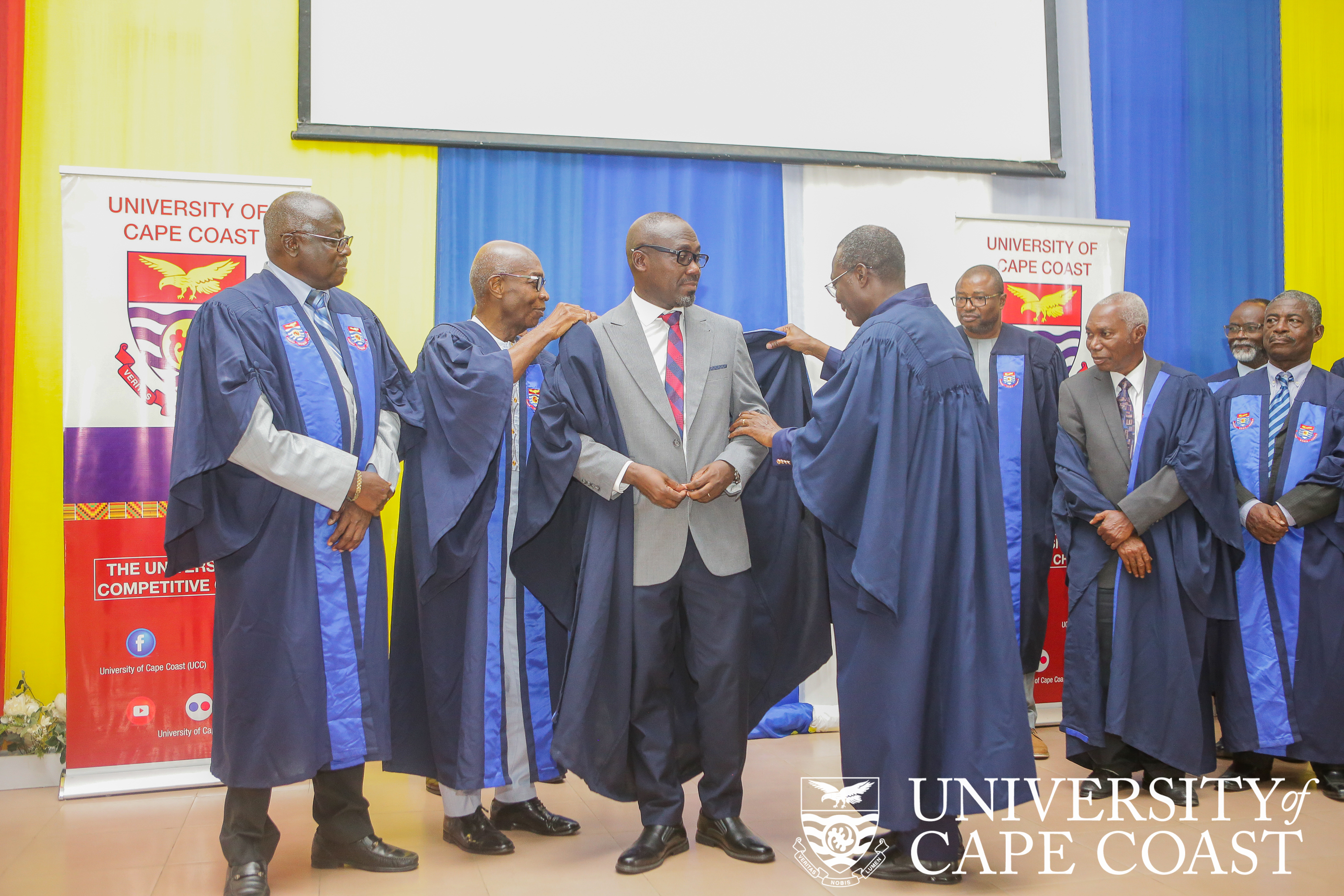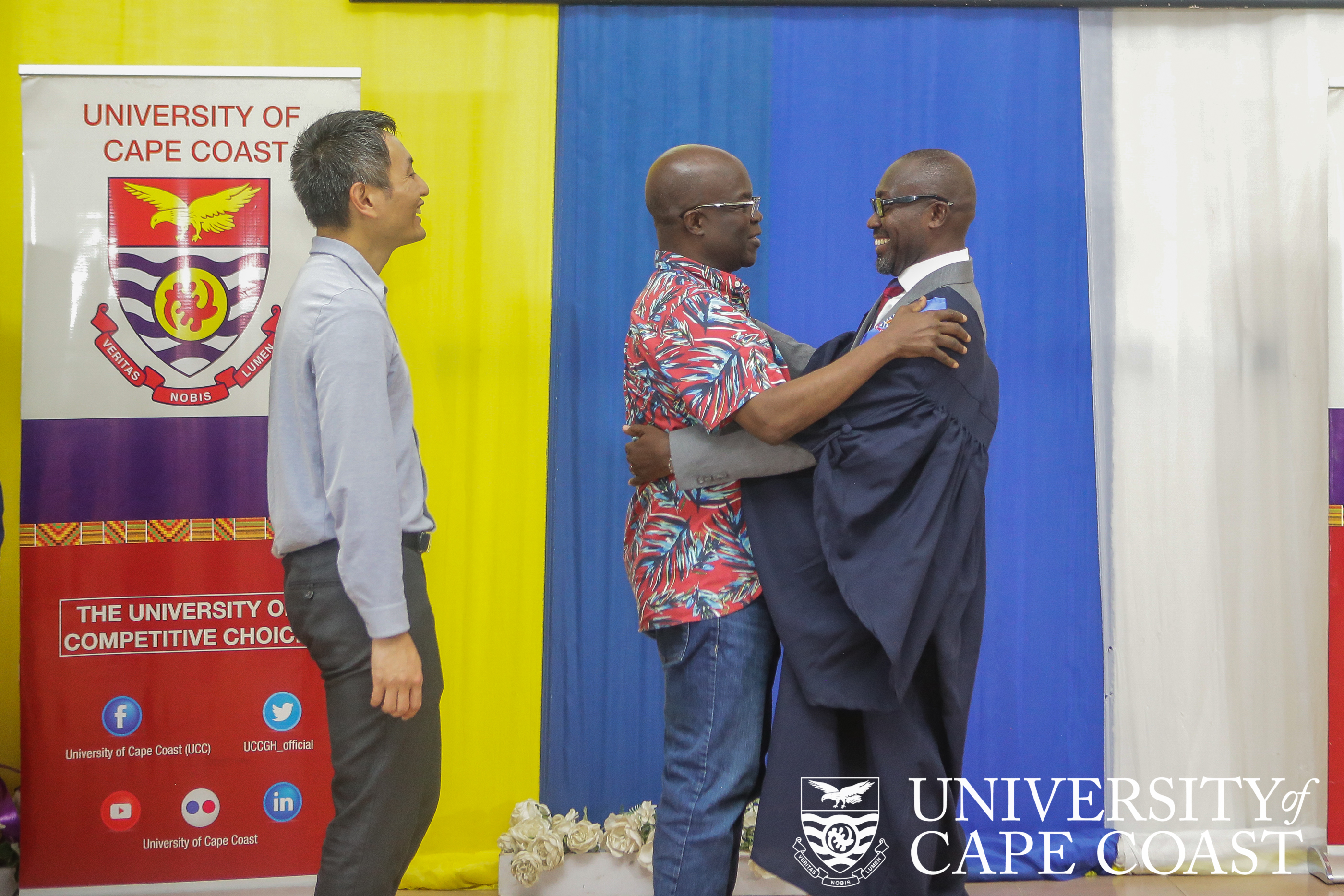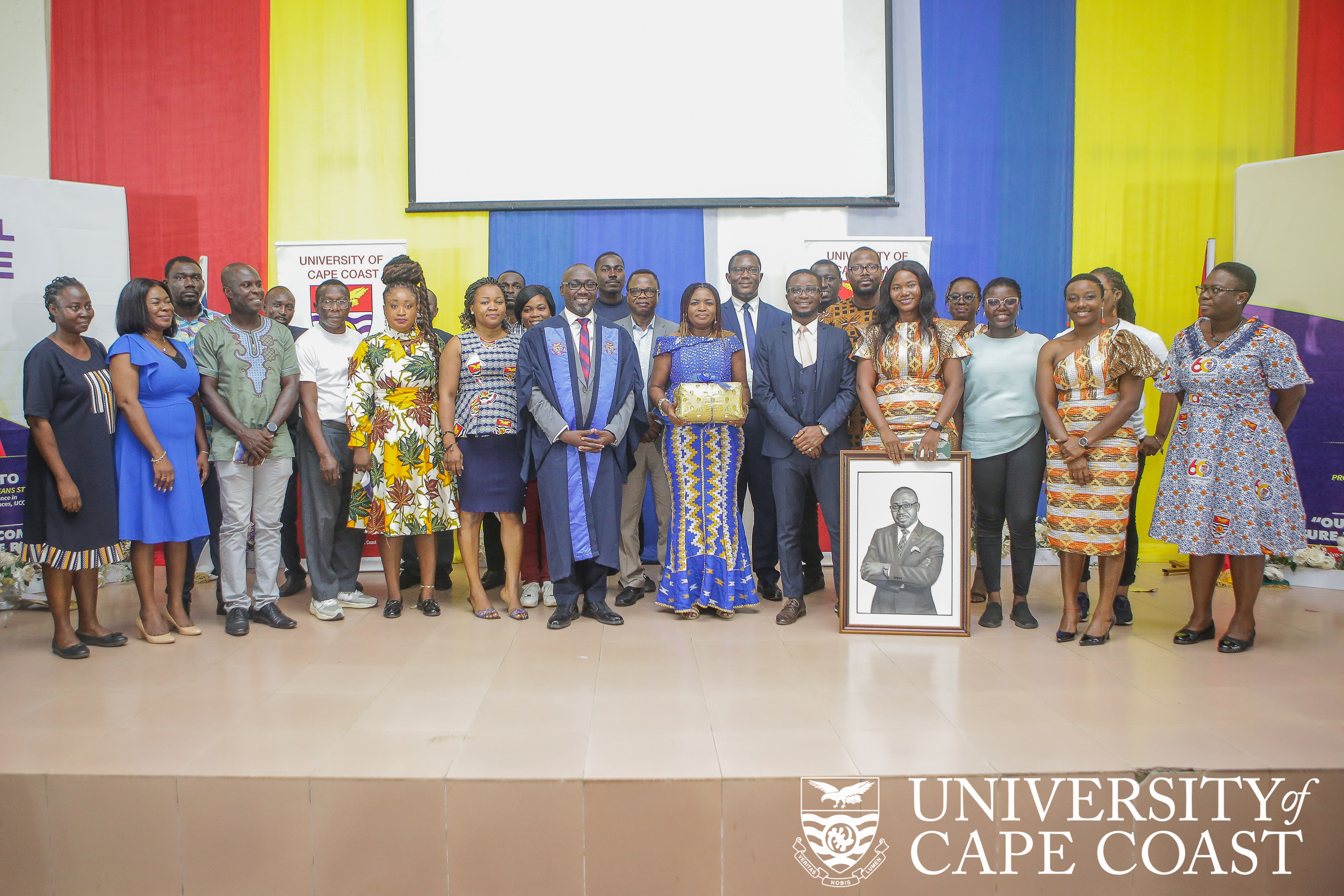A professor of Coastal Ecology and Interdisciplinary Oceans Studies, Prof. Denis Worlanyo Aheto, has expressed grave concern over the dire consequences Ghana’s ocean stands to suffer following the indiscriminate disposal of plastic waste into the ocean.
According to him, the pollution of the ocean has an overwhelming bearing on staple food and the over two million Ghanaians whose livelihoods depend on it.
“Significantly, fishermen are catching more plastic than fish. No one seems to care about the ocean even though we all like fish. Ghana is the number one fish-eating nation in Africa. The average Ghanaian eats about 25 kilograms of fish per year far above the global average of 15 kilograms per year,” he continued.
Prof. Aheto made the remarks while delivering his inaugural lecture on the topic: “Our Oceans: Securing our Common Future through Transformative Research.”
The event was attended by some past Vice-Chancellors of the University of Cape Coast,members of academia, marine life and ocean experts, students, researchers, civil society organisations, members of the diplomatic corps and other personalities.
The lecture, which was held at the School of Medical Sciences Auditorium, also saw in attendance the strategic partners of the Africa Centre of Excellence in Coastal Resilience (ACECoR) of the University of Cape Coast, including World Bank, the Association of African Universities, and the Ghana Tertiary Education Commission.
Prof. Aheto being robed by the VC-UCC, Prof. Nyarko Boampong and Prof. Blay. Looking on are members of the College of Professors-UCC
Continuing, he observed that there were untapped opportunities to secure the common future of the ocean and underlined the need to build human capital, as well as increase in human development index to meet the goals of the African Union (AU) Agenda 2063.
The AU Agenda 2063 is a strategic framework that focuses on achieving inclusive and sustainable socio-economic development over fifty years.
He opined that the ocean’s health and productivity were declining at an alarming rate, and posed a threat to humanity
Prof. Aheto maintained that Ghana’s coastal and marine resources face significant threats in the form of pollution, biodiversity loss, ocean dumping, overfishing, and other marine threats including overexploitation, illegal, unreported and unregulated fishing (IUU), piracy and trafficking.
In addressing the challenges, he called for structures to be put in place to help position the country to take advantage of the immense opportunities that would come with the blue economy.
Prof. Aheto being congratulated by Prof. Rashid Sumaila of the University of British Columbia (UBC)-Canada. Looking on is Prof. William Cheung also of UBC.
As a result, Prof. Aheto proposed to government to create a Blue Economy Authority, instead of a ministry, to serve as a strong coordinating unit and provide technical capacities aimed at halting the pollution of the sea and other water bodies, including the destruction of marine life.
He noted that the blue economy holds solutions to employment, food security and enhanced socio-economic well-being if properly harnessed.
Quoting explicitly from the World Development Report, he expressed worry that the Sustainable Development Goal 14, which is life below water, was the least funded among the 17 goals.
He said Africa needs a new ocean agenda anchored on the recognition that the blue economy should be a catalyst for sustainable development.
In line with SDG 17, Prof. Aheto called for partnership to promote sustainable practices and management of fishery resources to improve the ocean.
The inaugural lecture was chaired by the Vice-Chancellor, Prof. Johnson Nyarko Boampong.
Prof. Aheto with faculty, administrative staff and students of the Centre for Coastal Management-UCC
At a glance: Prof. Denis Worlanyo Aheto
Source: Documentation and Information Section-UCC




